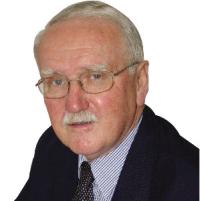
The Australian church is about to enter an exciting, challenging and hopefully rewarding three-year process of consultation.
Last August Archbishop Mark Coleridge of Brisbane announced that the Australian Bishops will convoke a Plenary Council at which “everything is potentially on the radar screen”, and at which a wide representation of the church, lay and clerical, female and male will be present. From now till the Plenary Council there will be a wide consultation of the entire Australian Church so that all voices can be heard.
This is going to be a massive and possibly messy task but if we do it well it could change the nature of the church in Australia. To some degree the process of consulting and talking with one another will be more important than the decisions the Plenary Council may make. As Pope Francis is always keen to point out, “time is more important than space” or it is the process, the change of attitudes, the new style of consultation, the different type of church that this generates is as important as the results. What Pope Francis wants is a new synodal church not just an occasional “Synod”.
During the last Synod of Bishops in Rome, Pope Francis gave an extraordinary speech to mark the fiftieth anniversary of the first Synod of Bishops [17th October 2016] in which he explained his vision for a synodal church, “A synodal Church is a Church which listens, which realizes that listening ‘is more than simply hearing’,” “It is a mutual listening in which everyone has something to learn. The faithful people, the college of bishops, the Bishop of Rome: all listening to each other, and all listening to the Holy Spirit, the ‘Spirit of truth’ (Jn 14:17), in order to know what he ‘says to the Churches’ (Rev 2:7)”.
“The Synod of Bishops is the point of convergence of this listening process conducted at every level of the Church’s life,” the pope continued. But the hierarchy’s authority is best interpreted within this Synodality of “journeying together”. Pope Francis often compares the church to an inverted pyramid where the top is located beneath the base and listens to, learns from and serves the base.
We are not used to that kind of authority nor to that level of responsibility. It will demand a much more adult approach to our faith and courage and wisdom to discuss and decide the important issues which up till now Rome has decided for us. Even till now many Episcopal Conferences have not taken up the freedom that the present Pope seems to be challenging them to. Our Plenary Council will be one of the first national “synods” in the modern Church.
We will need structures to be able to consult widely. Right now, they do not exist. Many parishes still do not have Parish Councils and most dioceses have not had Diocesan Synods. Without clear and enabling structures, consultations will be shallow and superficial. They will be dominated by the “right people”, the compulsively articulate or the angry and the voices of the minorities and the people on the peripheries will not be heard. The real questions and true wisdom may not emerge.
We will also have to develop the techniques and spirituality for discernment. Discernment is a skill which takes time and practice to develop. It is not something learnt from a book. People also need the experience of speaking up and being heard to grow in the confidence and ability to contribute and learn constructively.
All this amounts to a difficult but exciting challenge. No longer can one group be set apart and take all the responsibility. That is the clear lesson of the Royal Commission. We are going to need more lay and female involvement in the governance of the church in Australia on a national, diocesan and parish level. Women and lay people have insights, sensitivities, imagination and skills that are powerful, complementary and cannot be done without. It is the future and it is not only theologically desirable, psychologically necessary and administratively indispensable it is also enjoyable and life-giving for all of us.
Fr Noel Connolly SSC is a member of the Columban Mission Institute in North Sydney and a lecturer in Missiology at both the Broken Bay Institute and the Catholic Institute of Sydney.

